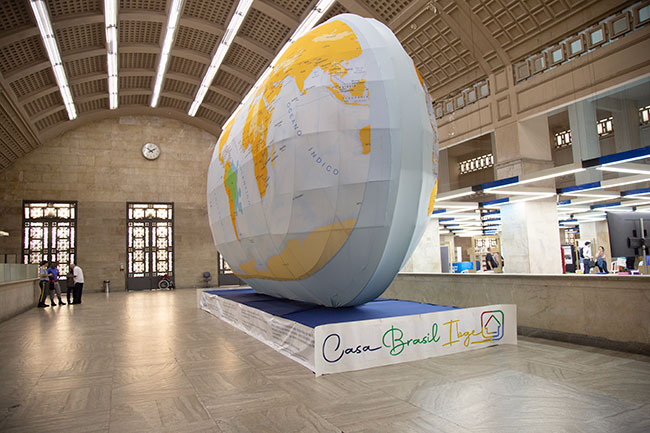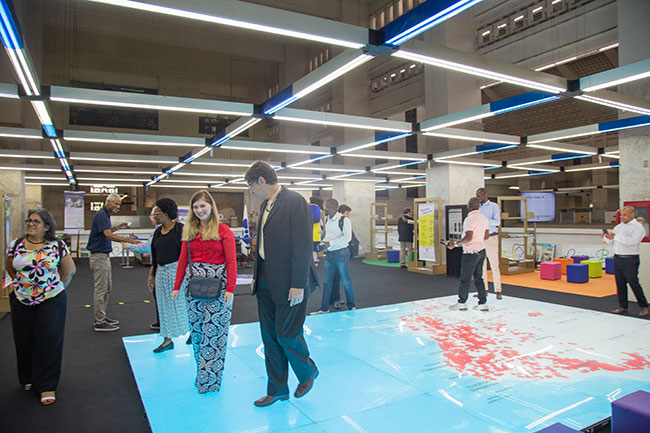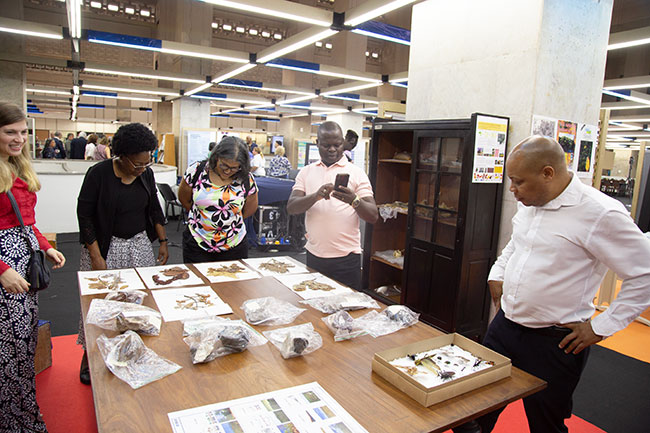Casa Brasil IBGE
IBGE reopens Casa Brasil IBGE with changes in the facility and prospects following the Digital Era Conference
August 21, 2024 06h51 PM | Last Updated: August 27, 2024 02h58 AM
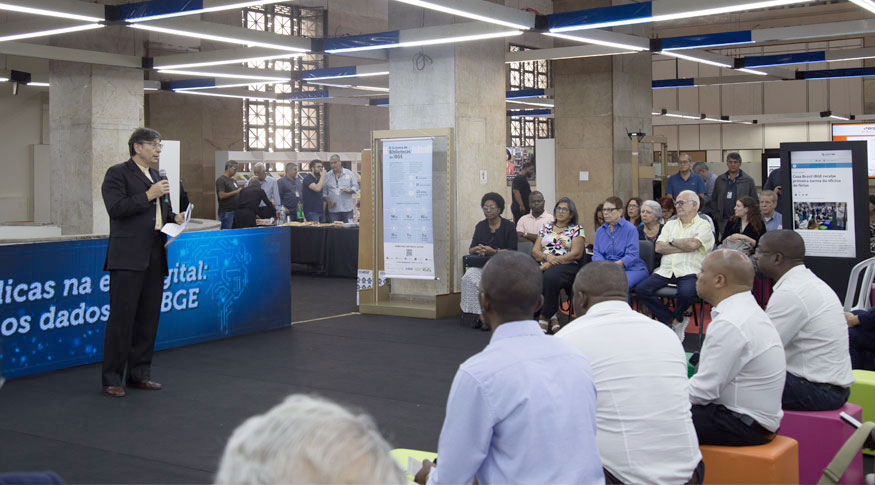
The Brazilian Institute of Geography and Statistics (IBGE) reopened, on Wednesday, August 21, Casa Brasil IBGE, located at Palácio da Fazenda, downtown Rio de Janeiro (RJ). The facility was closed during the National Conference of Data Producers and Users and resumed its activities with a new design, which includes an interactive map and a giant information display with a world map presenting Brazil in the middle of the projection.
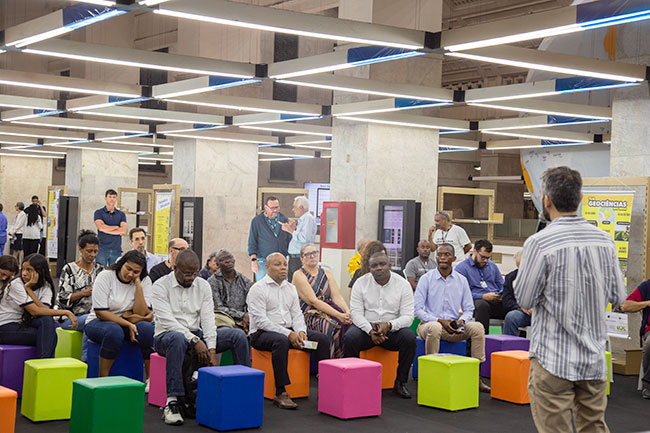
The event was streamed online on Digital IBGE, and attended by IBGE servants, national and international authorities, such as an entourage of nine members from the National Statistics Institute of Mozambique, including president Eliza Magaua, the associate consul of Japan, Yoshitaka Kinoshita, the consul general of Japan, Keisute Takahashi, the representative of UNFPA (United Nations Population Fund), Nádia Olinda Vaz, the professor from the State University of Rio de Janeiro, Adair Rocha, and the analyst from the Central Bank, Guilherme Billio.
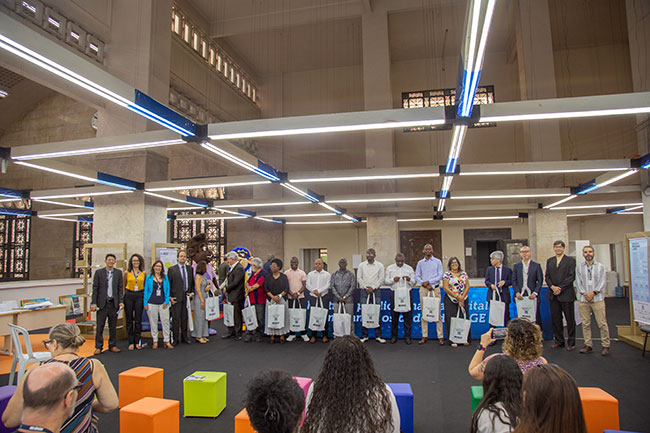
At the event the perspectives of the IBGE on advances in the National System of Geosciences, Statistics and Data (SINGED) were presented, and after the Digital Era Conference, the event held by the Institute in partnership with the State University of Rio de Janeiro (UERJ) at the beginning of the month, which brought together more than 3,000 participants, 600 speakers and 350 public and private, national and international institutions in Rio de Janeiro, to debate data sovereignty and technology.
The The First Months Report - Part 2 , was presented at Casa Brasil IBGE, with highlights of the progress made from January to August in each area of the IBGE, from directorates and general coordinations to advisory services and the presidency. The event also marked, symbolically, the one-year anniversary of the new management of the Institute, completed last Sunday, the 18th.
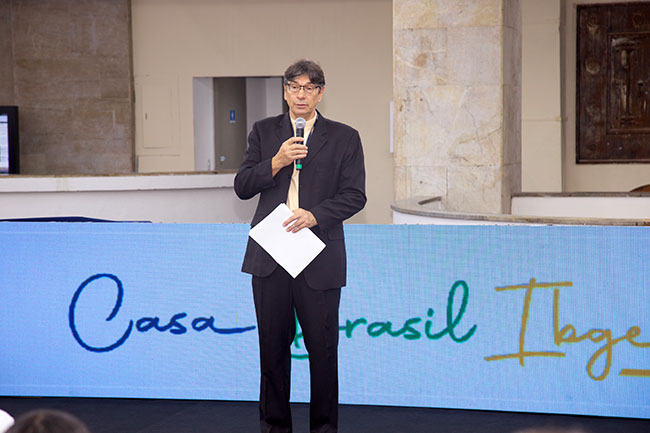
In his speech, Pochmann emphasized that “Casa Brasil IBGE is an initiative to introduce Brazilian society to everything that the institute has done over the years, disseminating the knowledge of a body that will present 314 surveys in 2024, with a huge amount of information about Brazil, so that society can use this data to get to know the reality of our country and, above all, to provide information on the public policies underway, which aim to deal with reality, changing it to improve the lives of the Brazilian people”.
The president of the IBGE also highlighted the role played by the SINGED after the Conference, to “fulfill the strategic and institutional mission of the Institute to portray the national reality and advance in international cooperation, combining the efforts of the IBGE civil servants, as well as of researchers and data users, members of civil society and public managers”.
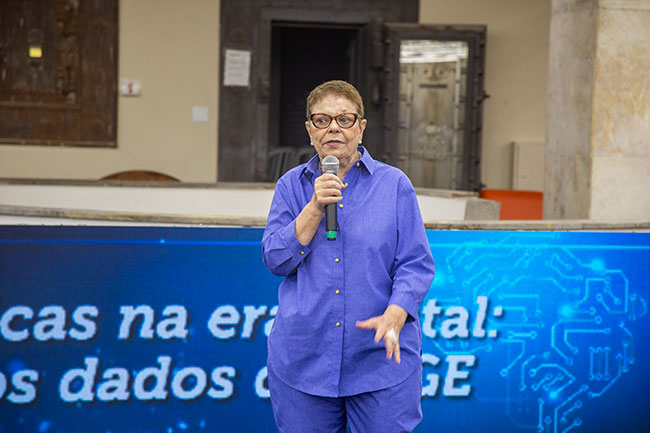
Maria Angela Carnaval, regional superintendent of administration for the Ministry of Management and Innovation in Public Services in the state of Rio de Janeiro, who is responsible for the administration of Palácio da Fazenda, where the Casa Brasil IBGE is located, explained that “the IBGE was a gift for us, because we had no idea that it would be such a success and that we would learn so much about the work of the Institute, beyond what is done in the Census. With this closer contact, I got to know the work of the IBGE better through the service with the students, and with the Casa Brasil IBGE the building has become even more beautiful”.
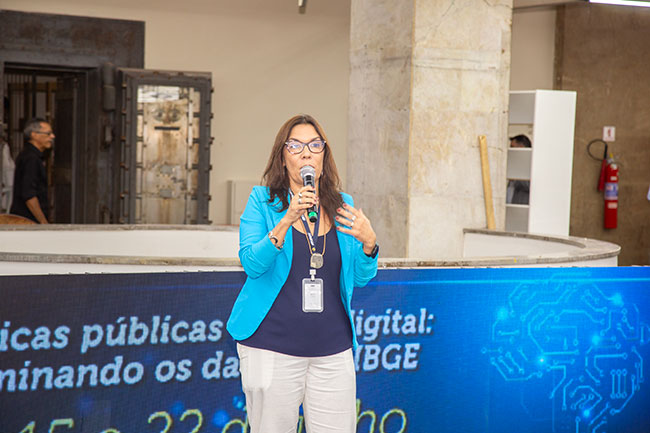
Ivone Lopes Batista, director of the Directorate of Geosciences (DGC) at the IBGE, highlighted the reopening of the Casa Brasil IBGE and its role in publicizing the Institute: “this place is the first contact with the research and work of the IBGE, as we have a wealth of historical material and a diversity of high-quality information on our websites, for example.” Batista also highlighted the advances made by the DGC in the report: “We came to present the advances made in the Geosciences area of the Institute, especially in the environmental and geospatial fields. All types of territorial occupation are represented in our geospatial services. We have made progress in the territorial bases adhering to census operations, such as quilombola and indigenous territories,” Ivone Batista said.
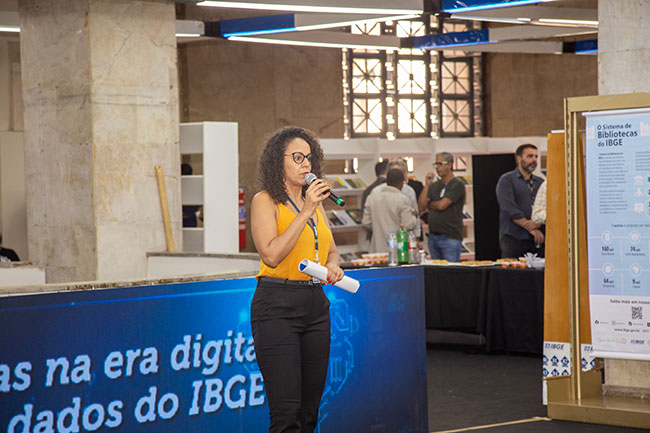
The Director of Surveys at the IBGE, Elizabeth Hypólito, emphasized the importance of giving visibility to the work carried out by the new management of the Institute in the first months of 2024, and of innovations such as SINGED. “ We have dedicated ourselves to these innovations without forgetting about releases, such as the Population Census. We also focused on projects for Rio Grande do Sul and the Agricultural Census. Discussing the opportunities and risks of the Digital Era will help us move forward in our research. We merge innovations with what is already done by the Casa”.
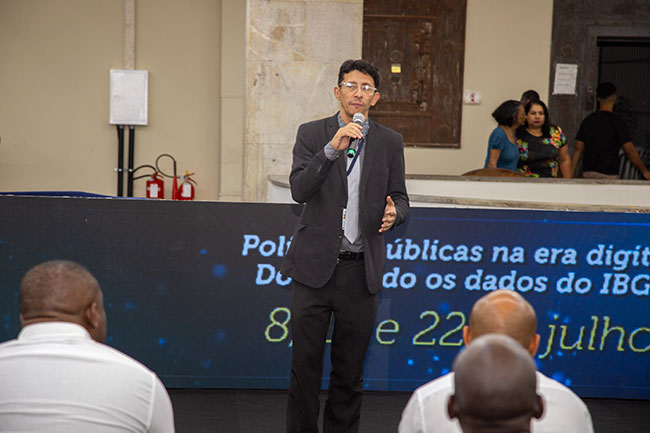
Daniel Castro, general coordinator of the Center for Information Documentation and Dissemination Center and of the Social Communication Coordination (CDDI CCS), explained that the aim of Casa Brasil IBGE is to re-brand the Institute and bring it closer to the people. “Instead of just talking about the Census, it is important to deal with more cross cutting themes, and the IBGE needed to have a place like this here in Rio de Janeiro, with a model more similar to a museum,” explained Castro.
The general-coordinator of the CDDI CCS also mentioned the opening of other IBGE Casas in the cities of Recife (PE) and Fortaleza (CE). “In the capital of Pernambuco, the aim is to be a think thank with Sudene (Superintendence for the Development of the Northeast), holding debates and statistics courses there, being closer to those who manage development projects in the Northeast region. In Fortaleza, the aim is to be more innovative, establishing partnerships with IPECE (Ceará Research Institute on Economic Strategy), Banco do Nordeste (Bank of the Northeast Region) and the Ceará State Government. This region is currently an innovation center,” the coordinator added.
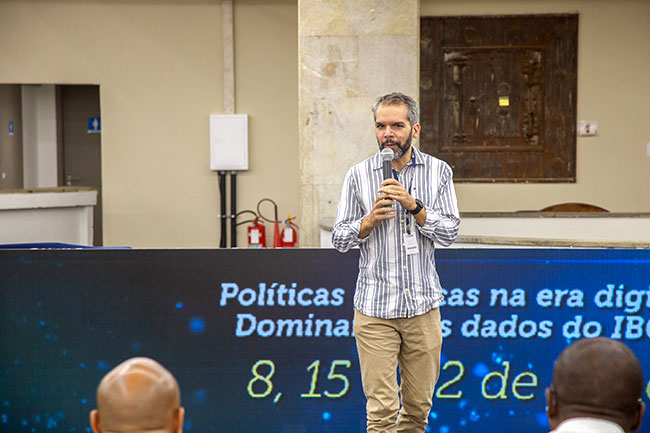
On behalf of the general coordinator of the National School of Statistical Sciences (ENCE) at the IBGE, Paulo Jannuzzi, assistant coordinator César Marques emphasized that the ENCE is the oldest statistical school in Latin America, having offered graduate and postgraduate education for at least 25 years. According to Marques, the report presented the progress made by the school, such as the “start of normative trails in data science for public and private agents, with broader projects aimed at the Census, for public managers, with the aim of disseminating knowledge to these managers. We held SIDRA courses and webinars with the big data hub, dealing with topics such as the use of mobile phone data, with a focus not only in Brazil, but internationally”.
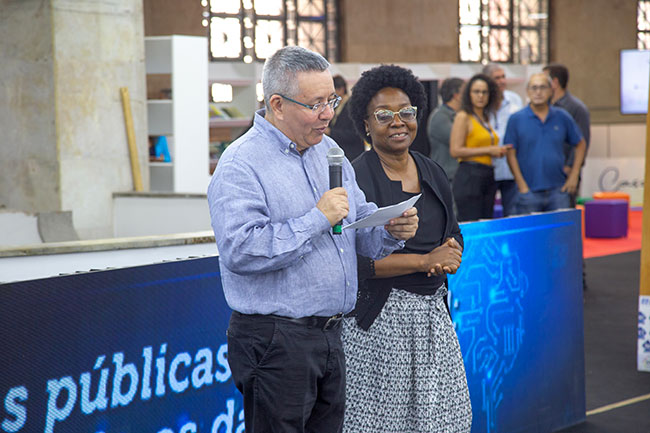
Roberto Sant'Anna is the International Relations manager at the Institute and gave the international authorities in attendance a kit of materials produced by the IBGE, including the 2030 Agenda and reports on the first few months of the current management of the Institute, highlighting the importance of the collaboration of the IBGE with other research bodies around the world. “This week we are receiving a delegation from the INE of Mozambique and a representative from the UNFPA in the African country to discuss the project to carry out the 5th Population and Housing Census in Mozambique, in 2027. One of the activities of the Institute is to cooperate with South-South countries, including some in Africa, such as Cape Verde, Ivory Coast, Mozambique and Senegal”.
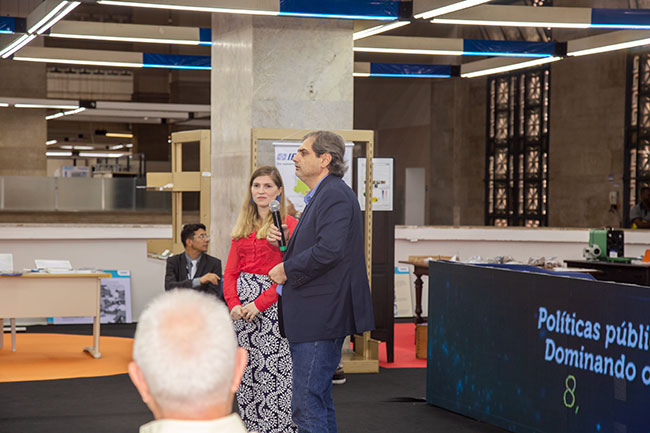
Emerson Dias, Service Coordinator (CDDI/COATI), said that “the idea of the Casa Brasil IBGE was born on the Institute's anniversary, in order to bring us closer to society. The IBGE is much more than the Census. When students visit the website, they discover that the Institute is much more than the Census. There have already been more than 1,500 visitors, three workshops involving public school students and university students getting to know the work of the Casa”.
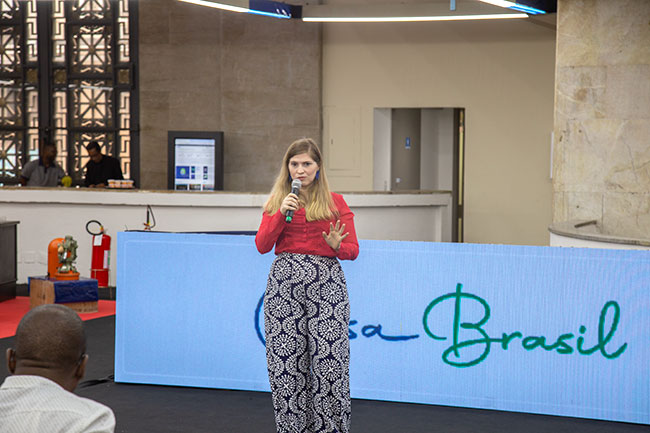
Danielle Barreiros, manager of the Library, Information and Memory Department (CDDI/GEBIM) added that the place is “a democratic place for Brazilian citizens to enjoy and feel at home. The IBGE is much more than the Census, we have a lot of very important surveys and in this venue, these surveys are released”.
Service:
Casa Brasil IBGE
Admission: free of charge
Opening hours: Monday to Friday, from 10 a.m. to 4 p.m.
Address: Ground floor of Palácio da Fazenda, located at Av. Presidente Antônio Carlos, 375 – Centro (RJ).
Visiting: For school visits, with groups of students and teachers, previous registration is required and booking must be made by filling in the form available on site da Casa Brasil IBGE website.
